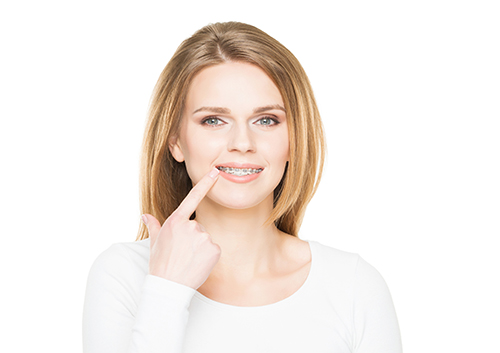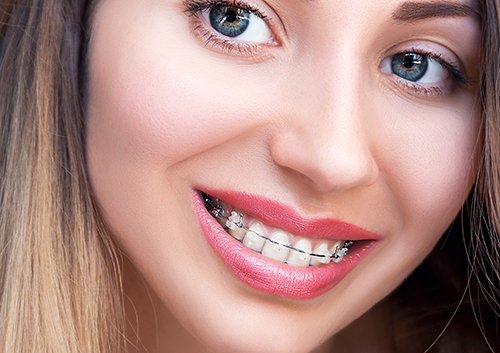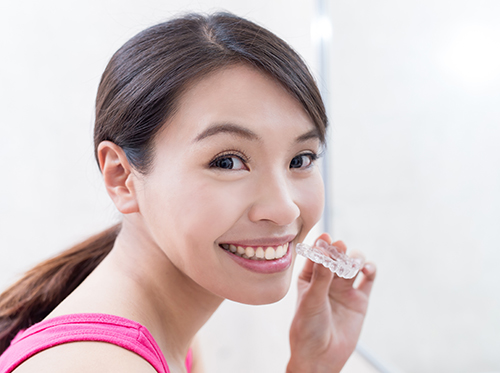Your First Winter in Braces? Tips for a Warm and Wonderful Holiday
December 3rd, 2025

If this is your first winter with braces, you might be wondering how to make the best of the holiday season. Dr. Gina Pinamonti and our team have some suggestions for happy and healthy holiday smiles.
Treat Yourself
Winter means tasty holiday treats, and just because you wear braces doesn’t mean you need to step away from the holiday table! You can enjoy your favorites if you remember to check your list for the usual problem foods. Hard, crunchy, chewy, and sticky items? Naughty list.
- Crunchy vegetables on the appetizer plate
- Nuts
- Hard rolls
- Candy canes and other hard sugar treats
- Caramels, Toffee and other sticky candies
- Pecan pie
- Fruit cake
Luckily, there are plenty of nice alternatives.
- Turkey and ham—remember, small pieces are best
- Dressing and stuffing
- Mashed potatoes
- Soft breads and rolls
- Pumpkin pie—but skip a tough crust!
- Cheesecake
- Soft cookies and cakes
- Soft chocolates
We’re happy to provide recommendations for braces-friendly holiday foods. And we don’t expect you to turn down every sweet treat this season. Just be sure that if you enjoy something sugary, brush carefully after indulging.
Express Yourself
While you’re decking the halls, or pinning up the New Year’s balloons and streamers, or even choosing a great holiday outfit, don't forget that your ligatures can be decorative as well as functional.
- Celebrating Christmas? Red and green bands around your brackets are jolly and traditional.
- How about Hanukkah? Try blue and white!
- Love the season? Icy silvers and pale blues are a frosty statement—and can have the benefit of making your teeth look whiter, as well. Snowy white? The arctic idea is great, but white bands can sometimes make teeth look more yellow, or become stained themselves.
- Glam New Year? Gold adds sparkle to your smile, but can bring out any yellow tones in your teeth. Silver might be the perfect choice, because it is generally neutral with enamel shades.
Check out our ligature colors for the best possible choices for your teeth and coloring. Take advantage of these options to create a fresh, confident look for the season. Give others the gift of your smile!
Look After Yourself
Winter comes with some special reminders about your dental health.
- Winter sports are a great way to celebrate the snow and ice, but be sure to protect your teeth and braces. If you enjoy skiing, snowboarding, ice skating, hockey, or any other winter activities, talk to us about why a mouth guard is so important.
- While you enjoy your winter break, don’t forget to keep up with your dental routine. And because ‘tis the season for holiday treats, be especially careful to clean your teeth and braces after sweet desserts and snacks. Don’t forget to floss!
- What do cold breezes and hot chocolate have in common? They can both trigger tooth sensitivity! While some sensitivity is normal after an adjustment, if you find you are experiencing tooth sensitivity more often or more strongly than you usually do, give us a call. It might be something as simple as brushing habits, or you might need to see your dentist.
If you have any questions about your braces, in this season or any other, just ask when you visit our Pittsburg, KS office. Your beautiful, healthy, and confident smile can make this the most wonderful time of the year!




 Website Powered by Sesame 24-7™
Website Powered by Sesame 24-7™